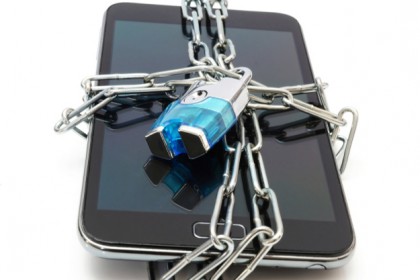
How secure is your smartphone? Your Android smartphone does many functions for you, everything from banking to shopping, to checking email and sending text messages, the amount of data that flows through your phone is amazing.
keeping data secured on your smartphones is just as critical as securing your desktop and laptop computers.Smartphone serves the purpose of connecting you with everyone and everything you care about, as your digital recorder of all things going on in your life. Smartphone users simply aren’t aware of the amount of data and private information that their phone is transmitting, sharing, and processing all the time which has led to a growth in mobile device hacking and malware downloads.
Ethical hacking:
Mobile devices are no longer a convenience technology imagine an attack surface spread throughout your organization. These devices are the biggest attack surface in most organizations today and many organizations often don’t have the skills needed to assess them. The Ethical hacking course is designed in such a way that gives you the required skills you need to understand the security strengths and weaknesses of Apple iOS, Android, and wearable devices.
To help you be more proactive, here are 9 tips to boost your smartphone security.
- Use a passcode lock to lock your screen:
God forbid, your phone is ever lost or stolen, not using a screen lock means you’re giving a complete stranger instant access to a range of sensitive information, including notes, contacts, and appointments. More than 30% of smartphone users don’t password protect their mobile devices Hard to imagine considering what an easy and effortless way this is to protect your device.
Creating a screen passcode for your mobile device isan absolute mustas it protects you from having your personal information taken should you leave your phone unattended, lose it, or it gets stolen.
- Log out after banking and shopping:
While using online banking to transfer funds or online shopping on your smartphone browser should be as safe as using it with a desktop browser, assuming the bank implements the appropriate security measures. Always make sure you log out when you are done since logging-out from your account prevents cyber-offenders from viewing your personal financial data if your smartphone is hacked. It goes same for shopping sites where your credit card info may be visible to anyone snooping on the transaction.
- Do not download unofficial apps:
The best way to keep your phone protected is to only install apps from the Google Play store. Installing third-party apps from a third-party can run the risk of infecting your phone with malware. However, there are plenty of respectable third-party apps that use a domain’s API to create their own mobile version of the site (i.e. Hootsuite for Twitter or Alien Blue for Reddit).
- Monitoring your App Permissions:
According to experts in cybersecurity, adware is the most common security risk with apps which help app makers turn revenue but some of this adware may collect personal details with the help of cookies and search history without your consent, send you messages with links to buy fake and untrustworthy products. We know it may be tempting to breeze through the permission grants for an app you really want, it’s extremely important to pay close attention to the access these apps are asking for.Always remember Before downloading an app, read through what permissions it requests from you.
- Install Security Apps:
Installing security apps such as Avast! Anti-Theft, Find My iPhone and Cerberus are excellent and effective choices to address security issues unique to mobile devices because it comes with many great benefits allowing users to control their devices remotely.
- Encrypt Your Phone’s Data:
Encrypting your smartphone’s data is a good way to ensure mobile security in the event your phone falls into the hands of a thief and you’re not able to block it remotely. Every smartphone devices have the ability to encrypt phone storage. Even if your device is lost or stolen, the more advanced adversaries will have little to no chance of getting to your data.
- Avoid Free Wi-Fi:
Who doesn’t love free Wi-Fi? Using unsecured free Wi-Fi is a bad idea and yet many of us are still happy to connect in cafes and railway stations because your Android cell phone may hate it if the Wi-Fi has been taken over by a data-stealing hacker. Always use public Wi-Fi only on secure networks requiring a password to access.
- App Deletion:
Getting rid of apps that you aren’t using should be deleted. Uninstalling app that you don’t use not only clear up space but also saves you from an untrustworthy app creator who can do a lot of serious damage.
- Update your operating system:
Finally, the obvious but biggest way to protect your smartphone security is to regularly update your smartphone’s operating system.
![]()
